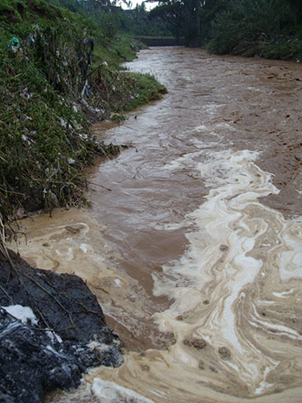15.5 Industrialisation
Industrialisation is the process of change from an agriculture-based economy, with most people working on the land, to one based on industry with people employed in manufacturing, construction and other sectors. It is linked to urbanisation because many of the people moving to urban areas do so in search of work and most factories and other forms of industry are located in towns and cities. Industry in Ethiopia has an important role in contributing to the economy of the country by alleviating poverty, and providing opportunities for employment for jobless citizens. However, it can also create problems and potentially have negative effects on water resources and the environment.
Many industries are growing fast in Ethiopia and can exert added demand for water supply. Industry may also cause pollution of water resources. Pollution can be defined as the presence or release into the environment of any substance that can cause harm. If industrial expansion is not controlled, and if appropriate regulations are not in place and enforced, then the environment may suffer. Water sources may become polluted and unsafe for human consumption. In Addis Ababa, the Akaki River has become severely contaminated by industrial wastewater that has been discharged untreated into the river with damaging impacts on local people, domestic animals and wildlife, both in the immediate location and downstream of the source of pollution (Figure 15.4).

15.4 Urbanisation
